Exhaustion and sleep deprivation are still a constant and reading is the one form of entertainment that withstands constant interruptions and truly random access, so I’ve been on a sort of a Sci-Fi classics binge, interspersing them with more recent works, and instead of posting a triptych, this week I thought I’d go for a six-pack – I may lack the energy to draft new articles, but putting together my usual notes on each book I read is pretty easy, and a great help when I stumble across something in my shelves I haven’t seen in a while.
Although I’m also reading other kinds of books (more on those in a later post), one of the reasons I like the genre is that it reflects people’s expectations and concerns towards the future – it’s fun to see how underlying themes reflected their author’s background and perception of possible futures and the way plot devices and scope changed over time – we’re now looking towards the post-human and pervasive technology where a couple of decades back (or earlier) the themes tended to reflect post-war concerns and rely less on operatic settings, and I’m always trying to catch glimpses of our collective unconscious in current writers’ topics.
But without further ado, here are the past few weeks’ books:
| “The Forever War”:ISBN:1857988086 | “Mindbridge”:ISBN:0380016893 | “The Engineer, Reconditioned”:ISBN:0809556146 |
|---|---|---|
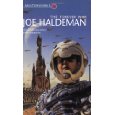 |
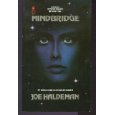 |
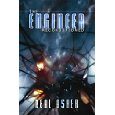 |
| I read this one ages back, and dug it out last week for a re-read, since it was one of the first books I got from the S.F. Masterworks collection. As such things go, it is a decent rendition of what interstellar war would be like at relativistic speeds and with the resulting time dilation between campaigns, and it’s become a classic because of the way the resulting dislocation mirrors that of every infantryman – “Joe Haldeman”:Wikipedia:Joe_Haldeman being a war veteran himself. | I wasn’t at all enthused by this one, though. The overall writing is terse and with little character depth (occasionally reading like a bunch of mission reports), and the plot isn’t exactly crammed with original ideas even if there were some interesting bits. So I can’t really recommend it, although it was interesting enough to pass the time. | This is a collection of “Asher’s”:Wikipedia:Neal_Asher short stories, some of which fill in a few blanks in his Polity series and/or provide a sort of continuation to the same. I found them to be an entertaining mosaic, well-suited to my foreshortened attention span and providing a few glimpses into other avenues he might yet explore in his writing. |
| “The Stars My Destination”:ISBN:1857988140 | “Nova War”:ISBN:033045675X | “Hilldiggers”:ISBN:0330441531 |
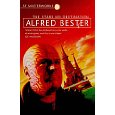 |
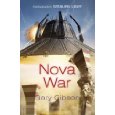 |
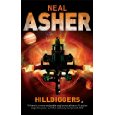 |
| Another re-read, prompted in part by my realization that I had previously come across something along the lines of “Jumper”:ISBN:0007275994 (read a few weeks back) but with grander scope. A masterpiece of imagination and ingenuity, the way the lead character changes as his motivation makes the action progress becomes an essential part of the story and makes it truly gripping, even if there are some decidedly odd angles to the plot. | Next in the history arch from “Stealing Light”:ISBN:0330445960 (previously), this is a competent, fast-paced and entertaining sequel, although there are a few bits where the backstory is repurposed to expand on some characters’ motivations in a way that does not feel wholly consistent. Nevertheless, there is much to take in and enjoy | Classical “Asher”:Wikipedia:Neal_Asher that I only came across recently (I seem to be reading his Polity series in the most random order possible), it’s a smooth, fast-paced and sticky tome, with satisfyingly complex characters that play against an original (if sometimes predictable) plot line. |